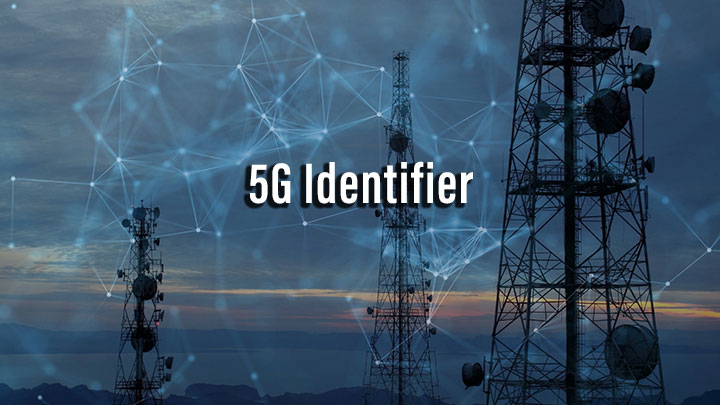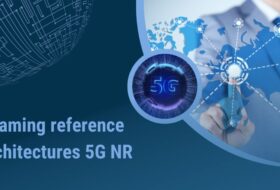What is 5G Identifier?
Identifiers play an important role in the 5G System, for example, the permanent and temporary subscriber identities are constructed to identify not only a particular subscriber, but also the network function(s) where the permanent and temporary subscriber records are stored.
The network identifiers in 5G system are divided into subscriber identifiers and UE identifiers. Each subscriber in the 5G system is assigned a 5G subscription permanent identifier (SUPI) to use within the 3GPP system. The 5G system treats subscription identification independent of the UE identification. In that sense, each UE accessing the 5G system is assigned a permanent equipment identifier (PEI). The 5G system assigns a temporary identifier (5G-GUTI) to the UE in order to protect user confidentiality
5G Identifier
The network identifiers in 5G system are divided into subscriber identifiers and UE identifiers.
- Subscription Permanent Identifier(SUPI)
- Subscriber Concealed Identifier (SUCI)
- 5G Globally unique Temporary Identity (5G-GUTI)
- Permanent Equipment Identifier (PEI)
- Generic Public Subscription Identifier (GPSI) Network Slice Identifiers
- AMF Name
- Data Network Name (DNN)
- Internal-Group Identifier
Subscription Permanent Identifier(SUPI):
- 5G Subscription Permanent Identifier is a global unique identifier that is assigned to each subscriber in the 5G system, which is provisioned in the UDM/UDR.
- The SUPI is used only within 3GPP system.
- The previous generations’ IMSI and network access identifier (NAI) can still be used in 3GPP Rel-15 as SUPI, it means to enable the EPC inter working
- The use of generic NAI makes the use of non-IMSI-based SUPIs possible.
- The SUPI must contain the address of the home network in order to enable roaming scenarios.
- For interworking with the EPC, the SUPI allocated to the 3GPP UE is based on the IMSI.
- Furthermore, 5GS defines a subscription concealed identifier (SUCI) which is a privacy preserving identifier containing the concealed SUPI.
Subscriber Concealed Identifier (SUCI) :
- A one-time use subscription identifier, called the SUbscription Concealed Identifier (SUCI), which contains the Scheme-Output, and additional non-concealed information needed for home network routing and protection scheme usage.
- Constructed by UE including
- Protection scheme Id
- Home Network public key Id
- Home network Id, e.g. MCC and MNC (not concealed)
- Protection scheme-output
- The SUCI calculation indication, either USIM or ME calculating the SUCI, shall be stored in USIM.
- Based on home operator’s decision, indicated by the USIM, the calculation of the SUCI shall be performed either by theUSIM or by the ME.
The Subscription Concealed Identifier, called SUCI, is a privacy preserving identifier containing the concealed SUPI.
5G Globally unique Temporary Identity (5G-GUTI)
- The AMF shall allocate a 5G Globally Unique Temporary Identity (5G-GUTI) to the UE that is common to both 3GPP and non-3GPP access.
- . It shall be possible to use the same 5G-GUTI for accessing 3GPP access and non-3GPP access security context within the AMF for the given UE.
- The AMF may assign a new 5G-GUTI to the UE at any time.
- The AMF may delay updating the UE with its new 5G-GUTI until the next NAS signaling exchange.
- The 5G-GUTI comprises a GUAMI and a 5G-TMSI, where GUAMI identifies the assigned AMF and 5G-TMSI identifies the UE uniquely within the AMF.
- The 5G-S-TMSI is the shortened form of the GUTI to enable more efficient radio signaling procedures.
Permanent Equipment Identifier(PEI)
- A Permanent Equipment Identifier (PEI) is defined for the 3GPP UE accessing the 5G System.
- The PEI can assume different formats for different UE types and use cases.
- The UE presents the PEI to the network along with an indication of the PEI format being used.
- If the UE supports at least one 3GPP access technology, the UE must be allocated a PEI in the IMEI format.
- In 3GPP Rel-15, the only format supported for the PEI parameter is an IMEI.
Generic Public Subscription Identifier (GPSI) Network Slice Identifiers:
- Generic Public Subscription Identifier (GPSI) is used for addressing a 3GPP subscription in different data networks outside of the 3GPP system.
- The 3GPP system stores within the subscription data the association between the GPSI and the corresponding SUPI.
- GPSIs are public identifiers used both inside and outside of the 3GPP system.
- The GPSI is either a mobile subscriber ISDN number (MSISDN) or an external identifier.
- If MSISDN is included in the subscription data, it will be possible that the same MSISDN value is supported in both 5GS and EPS.
- There is no one-to-one relationshipbetween GPSI and SUPI.
AMF Name
- AMF Name is used to identify an AMF.
- It can be configured with one or more GUAMIs.
- AMF Name is a globally unique FQDN.
- At a given time, GUAMI with distinct AMF Pointer value is associated to one AMF name only.
Data Network Name (DNN)
- A DNN is equivalent to an APN.
- The DNN may be used for.
– Select a SMF and UPF(s) for a PDU Session.
– Select N6 interface(s) for a PDU Session.
– Determine policies to apply to this PDU Session.
Internal-Group Identifier
- The subscription data for an UE in UDR may associate the subscriber with groups. A group is identified by an Internal- Group Identifier.
- UE can belong to a limited number of groups.
- The group identifiers corresponding to a UE are provided by the UDM to the SMF and when PCC applies to a PDU session by the SMF to the PCF.
- The SMF may use this information to apply local policies and to store this information in charging data record.
Reference 3GPP 23.501,TS33.501
You Might Also Like
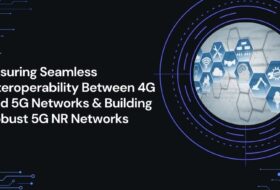
18
Nov

17
Nov
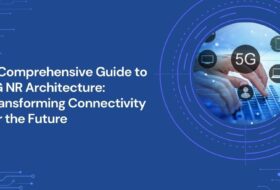
17
Nov
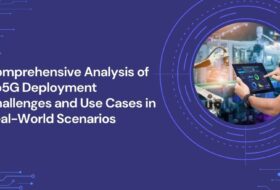
14
Nov

